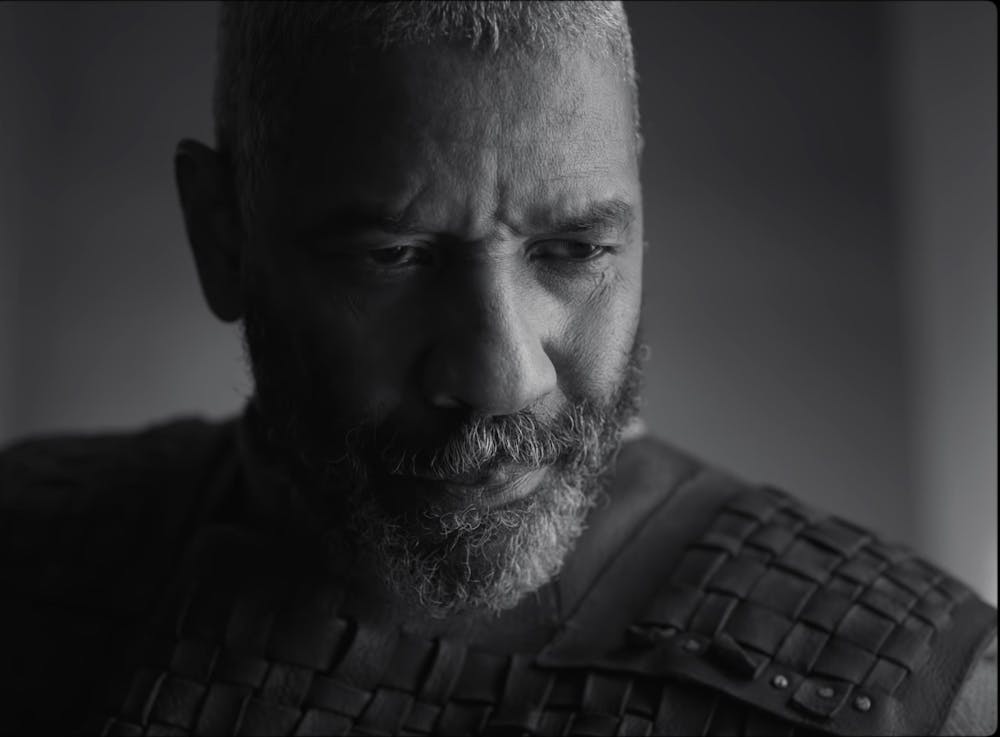This review contains spoilers
“Macbeth” has been done a thousand times over, both on stage and on film. You may know it for its timeless story of ruthless ambition or you may know it as that Scottish play you had to read for your high school English class. Either way, Shakespeare’s play has had some staying power and “The Tragedy of Macbeth” is only another testament to the English playwright’s genius.
The film, having just been released on Apple TV+ on Friday, Jan. 14 after a limited theatrical run, follows — you guessed it — Macbeth and his bloody journey to become king of Scotland prompted by a strange encounter with a trio of witches.
Joel Coen, directing without his brother Ethan for the first time in his nearly 40-year career, stays remarkably faithful to Shakespeare’s original vision. So for those of you who hated the play in high school for being completely unintelligible, you may not find much solace here.
Despite this, “The Tragedy of Macbeth” feels surprisingly refreshing in its faithful interpretation. The play is as exciting and attention-grabbing as ever, even if I could only make out what any given character was saying about 50% of the time.
The dialogue is assisted heavily by some brilliant performances from Denzel Washington as the titular Macbeth and Frances McDormand as the manipulative and scheming Lady Macbeth. Washington commands the film through every floating dagger and ghostly banquet guest, with McDormand bringing her typical strength and assuredness to what is arguably the strongest character in the whole play.
One small deviation Coen makes from the original would be in the slight expansion of the character of Ross, played somewhat strangely and ineffectively by Alex Hassell. The additions are largely just as ineffective as Hassell’s performance; they seem to patch some plot holes that Coen saw with the original play, such as where Fleance goes when he escapes the murderers sent by Macbeth, but this neither adds nor takes away from the film.
Speaking of floating daggers, though, Coen does a brilliant job of grounding more of the fantastical elements present in the play while still retaining that ominous and spiritual feeling present within the images. A great example of this is the scene where Macbeth famously sees a floating dagger coming toward him before he goes to murder King Duncan. We first see the dagger from afar, but as we slowly inch closer and closer, we see it is no dagger at all but merely a door handle. It makes the audience feel as if we, too, are seeing things.
The genius of the floating dagger scene also comes in large part to Stefan Dechant’s wonderfully minimal production design. The sets throughout the film look far more like sets you’d see in a stage production of “Macbeth” rather than a film adaptation with most actively revealing and acknowledging that they are, in fact, sets and not actually a castle or dense forest.
The production design is complimented elegantly by frequent Coen collaborator Bruno Delbonnel’s stunning black-and-white cinematography and a hauntingly bare score from Carter Burwell.
All of these different elements come together to form an authentic yet still unique interpretation of the Shakespeare classic, for this tale was told by no idiot and certainly signifies Coen as a truly fantastic director independent of his brother. Let’s just hope Coen’s ambitions don’t get the best of him.
John Scott is the managing editor at the Daily Lobo. He can be contacted at managingeditor@dailylobo.com or on Twitter @JScott050901
Get content from The Daily Lobo delivered to your inbox






